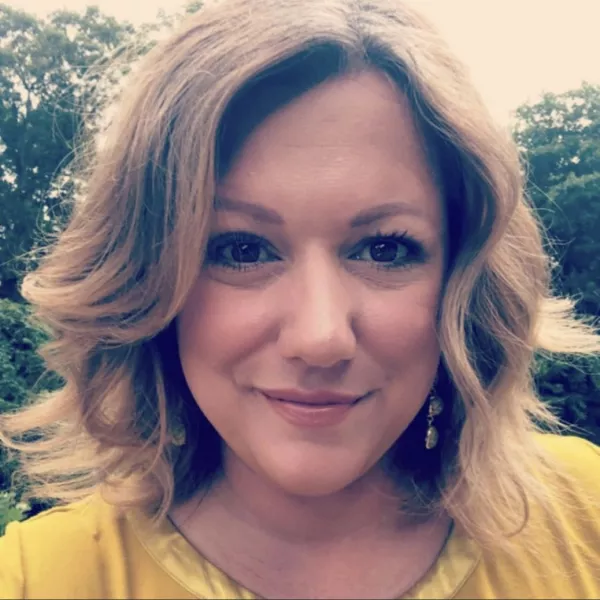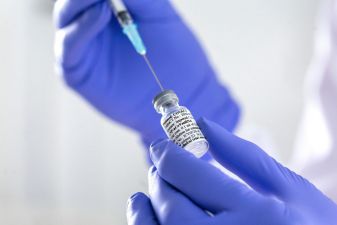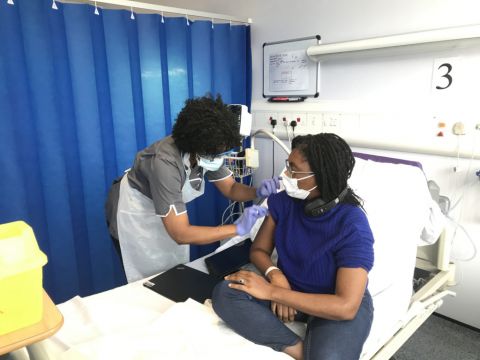Volunteers on the Pfizer vaccine trial have spoken of their pride and excitement after data suggested the jab was more than 90 per cent effective in preventing Covid-19 infection.
More than 43,500 people in six countries have taken part in the phase three trial run by the pharmaceutical giant and its partner BioNTech.
Among them was Carrie, a 45-year-old from Missouri in the United States, who said signing up for the trial was a “civic duty” and said Monday’s positive news left her feeling “very proud”.
“There are so many people who have had it and suffered," she said of Covid-19.
“The thought that we could do something to stop people from suffering from this, from losing family members, that we could get rid of it and get back to some sort of normal in our lives – that’s a driving factor for this for me.
“I don’t want anyone else to be sick.”

Carrie, who works in publishing, received her first shot back in September and a her second last month.
The trial is double blind, which means the participants do not know if they are receiving the vaccine or a placebo – but Carrie believes she received the former.
She said she suffered side effects – a headache, fever and aches over her body – which were comparable to a flu jab after her first shot, and more severe after the second.
Glenn Deshields, a lobbyist from Austin, Texas, compared the side effects to “a severe hangover”.
.@pfizer My Grandad told me that one of his first memories was of bells ringing to mark the end of WWI. If true, this is that kind of moment. I am honored to be a part of this trial. https://t.co/gU6L49Vdbj
Advertisement— Glenn Deshields (@glenn_deshields) November 9, 2020
Mr Deshields, 44, said he subsequently scheduled an antibody test through his doctor and it came back positive, so he was confident he had not received the placebo.
He said his own immune reaction to the shot made him confident about the vaccine, but he was nevertheless “very excited” by Monday’s news.
He added: “My grandfather, one of his first memories was of the bells ringing when World War I ended.
“It was a horrific war and horrible things happened and people were just happy it was over with.
“In my mind I felt the same way… I kind of felt it was something like that. Thank god, it’s going to be over at some point.”
Bryan, an engineer from Rome, Georgia, said he felt “a little bit of pride” on hearing the news but added that taking part in the study was “the least I could do to help out” as “a lot of people are needlessly suffering from the virus” in America.

Bryan believes he was given the placebo – he felt no immune response and, having received his two shots, came down with Covid-19 shortly after his daughter caught it last month.
His whole family ultimately caught it but have all recovered.
Bryan, 42, said watching President Donald Trump’s “bungled” response to the pandemic has been “disheartening”.

He voted for Joe Biden in last week’s election and believes the situation will improve once the president-elect takes office.
“I’m embarrassed by how the US president has handled the pandemic,” he said.
“But I’m hopeful now because in addition to the good news with the Pfizer vaccine, we have a new president-elect and I’m sure he won’t ignore scientists, he won’t downplay the virus, he won’t make fun of people wearing masks – so combined I think it’ll save a lot of lives.”







